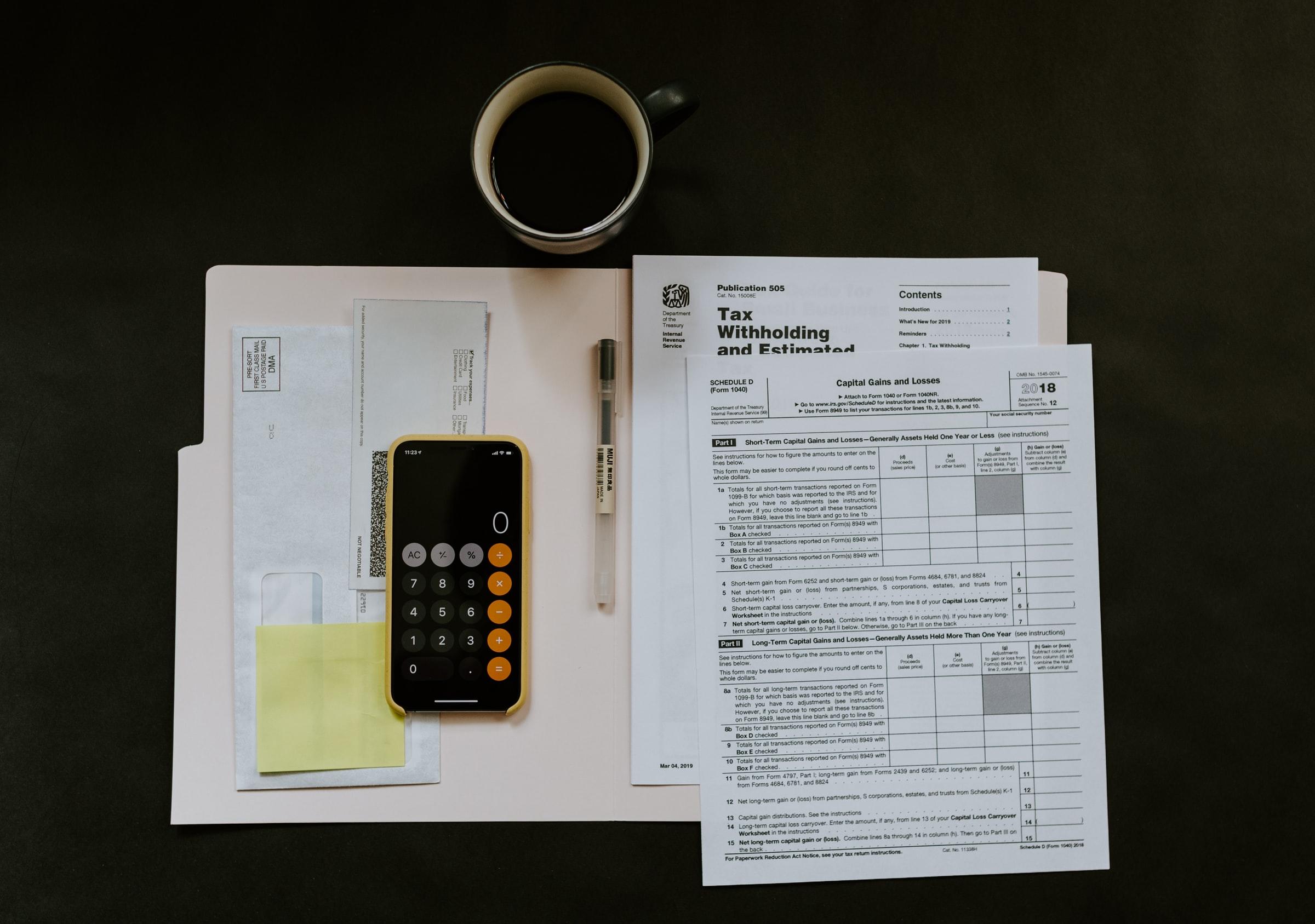"Never call an accountant a credit to his profession; a good accountant is a debit to his profession." -Charles Lyell
When it comes to the sector of accounting, there are plenty of jokes and puns that can and have been made. But, all humour aside, it's worth stating that accountants are necessary individuals in today's workforce. Accountants are the backbone of the business and finance sectors.
So, if you like numbers, have an analytical mind, and appreciate the idea of a stable job, becoming an accountant might be the right career for you. But, how does one become a qualified accountant in the UK? Without further ado, in today's article, let's analyse certain accountancy accreditations that are recognised nationally and internationally such as the ACCA, ACA, CIMA, and ICAEW.

What is an ACCA?

Regardless of the domain or the work being accomplished, people around the world tend to create "united" organisations that are universally collaborative and established using the same regulations. And, accounting is no different. The ACCA is a worldwide accounting organisation that sets the standards for accountants across the universe!
ACCA is an acronym for the Association of Chartered Certified Accountants.
The ACCA tries to use accountancy principles equally across many domains to help economies in developing and developed nations to grow and prosper. It's worth stating that, as of today, there are 241,000 fully qualified members of the ACCA and over 540,000 future members worldwide that are studying an accounting qualification.
But, what about structured degree programs from the ACCA? The ACCA qualifications are for accountants who want to be equipped with the latest tips and tricks that will assist them in the sectors of accounting, business, and finance. The ACCA works with universities in the UK and abroad to establish top-notch finance and accounting programs. Such as? For example, the "Foundations in Accountancy" FIA will give you technical knowledge, and help you hone transferable skills.
If you want more information about additional course programs, take a look at the ACCA website to learn more.
Before completion or review of an ACCCA qualification, students should revise the qualifications and what's required of them. Thankfully, after qualifications are received, there are multiple employment positions available to ACCA grads such as the following:
- Auditor,
- Tax Accountant,
- Financial Advisor,
- Property Accountant,
- Forensic Accountant.
There are many more employment positions open to accountants who are willing to put in the extra work. Also, at times, if you want to work on your side hustle whilst accounting, there's the possibility of part-time positions.
But, what's the difference between an ACA and an ACCA? Only a letter? Let's take a look at the following subheading!
What's the Difference Between an ACA and an ACCA?

Before we attempt to decipher the primary differences between the ACCA and ACA qualifications, we need to start from the beginning and determine what's what. So, what is an ACA and what is an ACCA?
Firstly, in the simplest of terms, the ACCA is a worldwide accountancy organisation that aims to provide standardized qualifications and degrees in accounting and finance for students around the world. There are many UK-based further education centres and accounting firms that are partnered up with the ACCA. I
Secondly, but most definitely not lesser in importance, the ACA is known as the associate chartered accountant (ACA) and is a qualification that is administered by the Institute of Chartered Accountants in England and Wales (ICAEW). The ACA is a UK-based accreditation that is quite similar to the CPA certification.
Therefore, while both acronyms sound extremely similar and are because they both promote accountancy education, there are some differences such as the ones outlined in the following list:
- The type of exam boards that offer accounting qualifications,
- How the assessments from the ACCA and the ICAEW are structured,
- The duration of the exams,
- The overall price of the examinations,
- The degree of difficulty.
The accounting exams offered by the ACCA and the ACA assessment from the ICAEW have their differences but it's important to mention that they are both fantastic options that will leave you feeling satisfied.
What is CIMA?
Another accounting acronym that is becoming more and more familiar to accountancy students is known as CIMA. But, what does it stand for and what's CIMA's overall purpose? Firstly, the acronym CIMA signifies the Chartered Institute of Management Accountants. Founded in 1919, CIMA is the global professional management accounting body based out of the UK. The overall objective of CIMA is very similar to the ACCA or ICAEW since they offer training courses and qualification programs that are related to accounting, business, and finance.
Unlike the majority of exams that are conducted and offered by the ACCA or ICAEW, CIMA has examinations that are designed for accountants who would like to work in management positions in the future.
Also, it's worth pointing out that CIMA qualifications are typically taken with other examinations and are typically regarded as an equivalent course that is on par with a Master's in account12 accounting exams make up the CIMA qualification and, according to most students, it takes approximately four years to complete.
But, what are some of the most significant advantages of taking a CIMA accreditation? The following are a few of the standout reasons that make CIMA courses a top-notch option:
- The CIMA accreditation uses technology in the best way possible,
- The CIMA course prepares graduates for careers in professional sectors other than accounting,
- CIMA graduates are highly regarded individuals in the job market rarely having to search for employment positions.
Aren't those stellar reasons to consider studying for a CIMA qualification? Visit the CIMA website to learn more about the accountancy courses offered in your local area.
What is the ICAEW Exam Structure?

Do you like to follow the rules and religiously obey orders? Most would resolutely answer no to that question. Nonetheless, to work in a structured work environment certain rules must be adhered to. One of the fundamental rules highlighted in any professional sector is that of getting qualifications; this can be done by taking some courses that will give you a diploma.
It's a commonly known fact that, without qualifications, especially in the sector of accounting, many individuals might feel apprehensive about hiring you to do their taxes or assist them with making financial decisions. So, why are we discussing this in such detail? Well, it's because, for accountants in the UK, the ICAEW is fantastic support.
The ICAEW is a global professional body for chartered accountants with the primary objective of guaranteeing that all chartered accountants registered with the ICAEW have the knowledge and values to help build local and global economies that are accountable and fair. Founded in 1880, the acronym ICAEW stands for the Institute of Chartered Accountants in England and Wales.
Although you might have never really heard about it, the ICAEW is by no means a small or insignificant organisation since there are more than 198,000 members around the world working with and for the most important accountancy firms.
Taking an accountancy degree qualification with the ICAEW is highly recommended for the following reasons:
- The ICAEW Promotes Inclusivity,
- The ICAEW Certifies Accountants Worldwide,
- The ICAEW Helps Public Sectors,
- The ICAEW Ensures Employability.
To guarantee that you don't miss the boat and that you take an ICAEW accounting assessment, aspiring accountants need to keep track of upcoming exam dates. If you're planning on taking the ACA Professional exams, the following dates are of prime importance:
- Session starting April 24: exam dates are June 5, 6, and 7.
- Session starting July 20: exam dates are September 4, 5, and 6.
- Session starting October 16: exam dates are December 4, 5, and 6.
On the other hand, if you want to sit for the ACA Advanced qualification, the following list mentions when you need to take this exam:
- Session starting May 22: exam dates are scheduled for the 17, 18, and 19 of July.
- Session starting September 11: the exam dates scheduled are November 6, 7, and 8.
The qualifications regulated by the ICAEW are brilliant and will set you up with a fantastic career in accounting.
In conclusion, we hope that this article about accounting qualifications has inspired you to further your journey into the business and finance world. Happy accounting!
Summarise with AI:
























